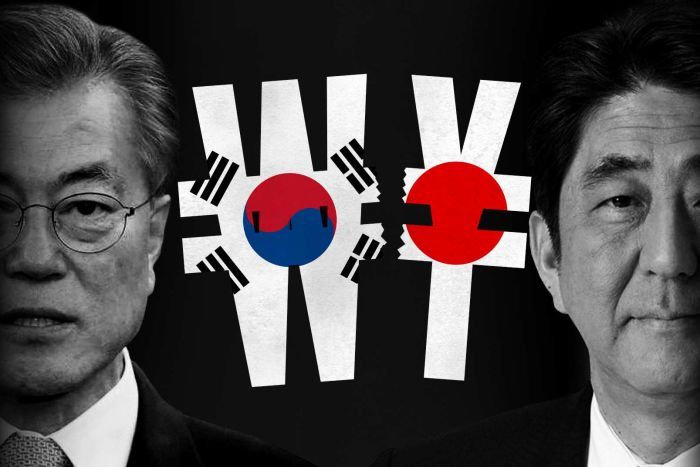China could play mediator role to help resolve Japan-South Korea trade friction

Global Times - 18 August 2019
China could play mediator role to help resolve Japan-South Korea trade friction
Tensions between Japan and South Korea have been escalating since July 1. Japan has since placed restrictions on three chemicals critical to South Korea’s tech industry. Uncertainty exists within ongoing negotiations for the Regional Comprehensive Economic Partnership (RCEP), and the China-Japan-South Korea free trade agreement (FTA).
Given the negative impact of the trade spat between Japan and South Korea, voices within academic circles have called for China to play a more active mediation role under the multilateral trade framework to promote regional economic integration in Asia, and withstand potential shocks stemming from global protectionism.
Bilateral disputes should not jeopardize the multilateral framework, but the recent tension between the two Asian countries has overshadowed negotiations on an agreement. South Korea’s trade minister addressed the conflict with Japan twice at the recent RCEP trade ministers meeting in Beijing, according to the Japan Times, citing a Japanese representative. So, the RCEP future pact could be affected.
Previously, RCEP negotiations over tariffs between Japan and South Korea had progressed smoothly. Before the trade row, the primary concern was India’s reluctance to accept a few terms due to economic gaps with developed countries.
While member countries have reportedly set a target to conclude RCEP negotiations by the end of 2019, it is hard to tell whether they can finish due to trade relations between Japan and South Korea.
In the context of the US-China trade war, there is a rising call among regional countries, especially with ASEAN countries, to finish the negotiations as soon as possible to withstand shocks from global protectionism through RCEP assistance.
If RCEP negotiations conclude this year, a multilateral FTA covering ASEAN countries, China, Japan, South Korea, India, Australia, and New Zealand will emerge. It would be the largest trading bloc accounting for 48.7 percent of the world’s population, 29 percent of its global GDP, and 29 percent of world trade, according to 2013 statistics from the IMF and UNCTAD.
Such expectation and eagerness is justified, but the original RCEP concept was to provide a high-quality and high-standard economic cooperation framework. If it has low-standard qualities, its significance for regional economic integration would be weakened.
The trade spat between Japan and South Korea has not only had a negative impact on RCEP negotiations but could hinder talks for the China-Japan-South Korea FTA. Since it was first proposed in 2002, the FTA agreement has progressed slowly.
Things only began to turn around in May 2018 after the three countries agreed at a summit to speed up talks for a "comprehensive, high-level and reciprocal" FTA between their economies. The combined economic value of China, Japan and South Korea reached $20.95 trillion in 2018, surpassing the size of the EU and approaching the size of the North American Free Tree Agreement (NAFTA). However, because of the Japan-South Korea dispute, the Asian trilateral FTA faces uncertainty.
China has always played an active role in regional economic integration, which is why China could act as a mediator to help Japan and South Korea reach a compromise. The approach of easing their tense relationship under a trilateral FTA framework could be a way to avoid nationalist pressure inside the two countries.
In the long run, there is room for dispute consultation between Japan and South Korea. Despite tensions, good news is still emerging. According to media reports, the Japanese government recently approved its first exports of chipmaking materials to South Korea under the new export restrictions.
Japan hasn’t entirely cut off critical material supplies to South Korea, indicating room for mediation. Therefore, China could play a mediator within the trilateral or multilateral framework to promote regional economic integration amid escalating pressure from nationalist trade protectionism.
The article was compiled based on an interview with Chen Youjun, a senior research fellow and director of regional economics office with the Shanghai Institutes for International Studies.





